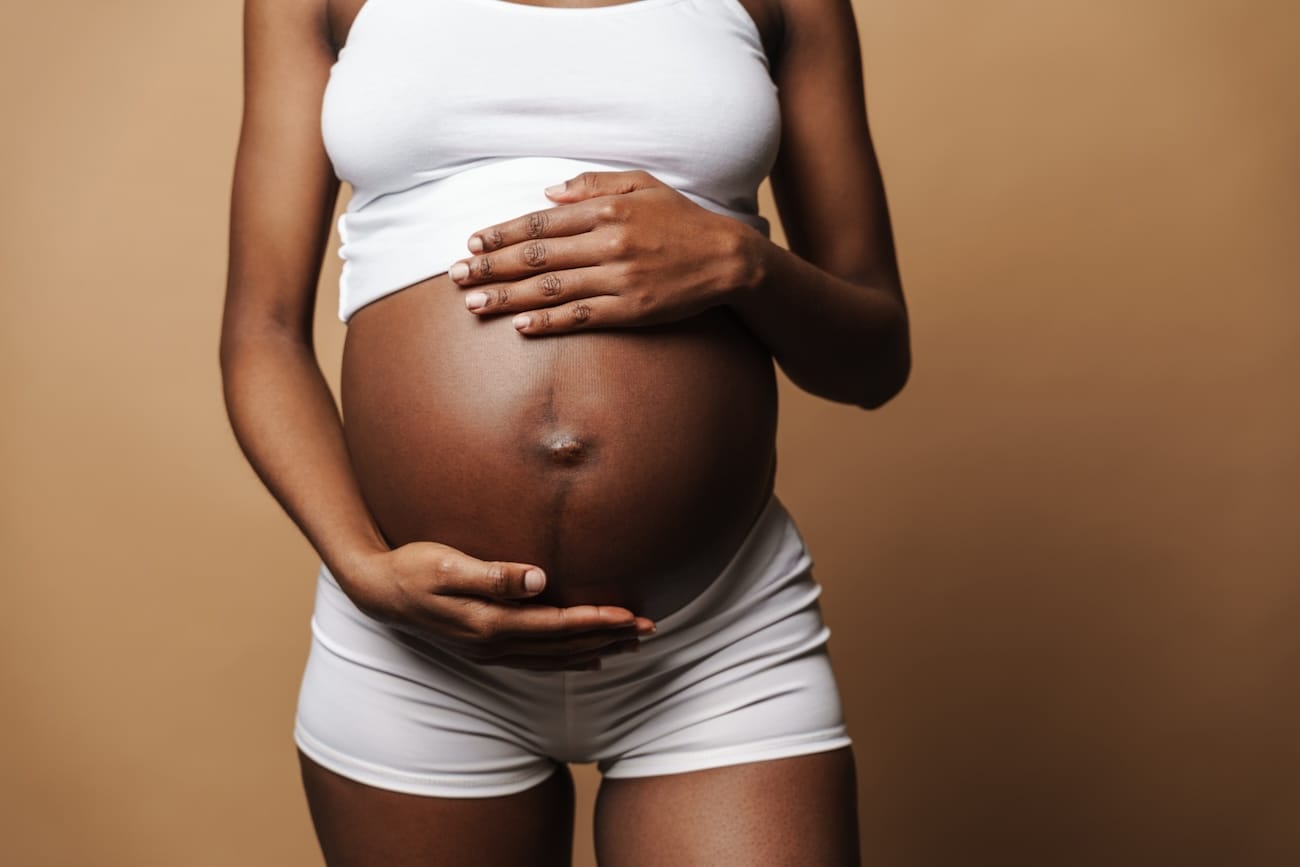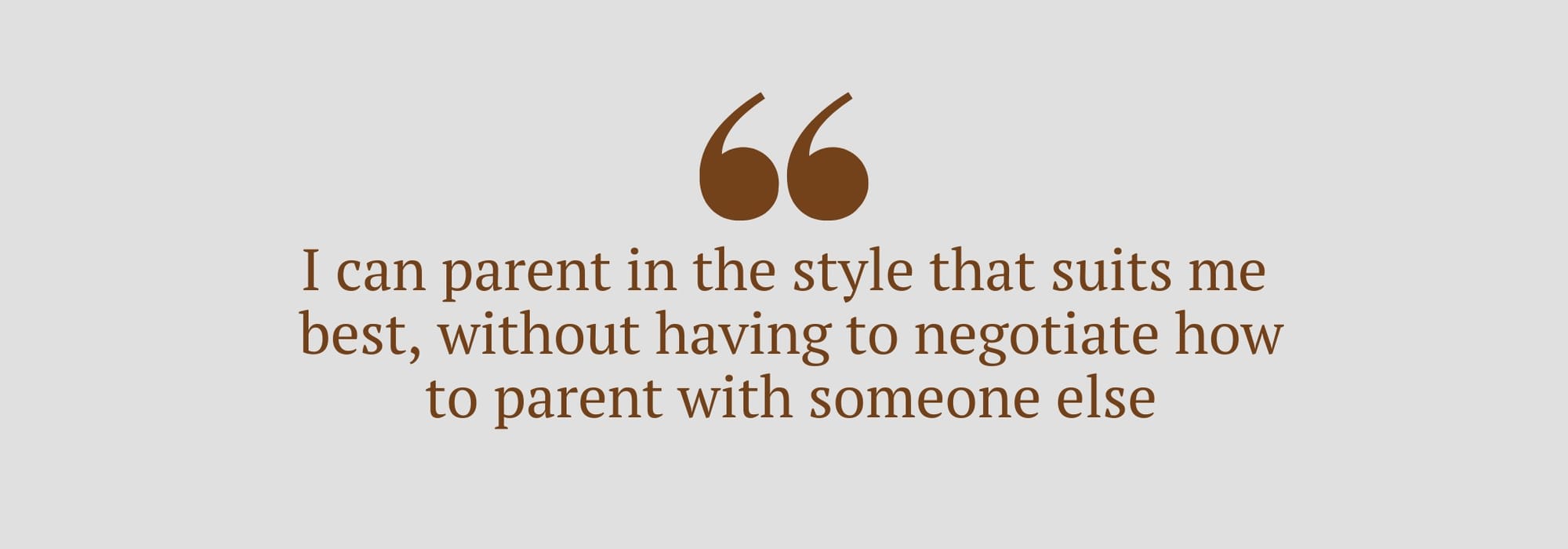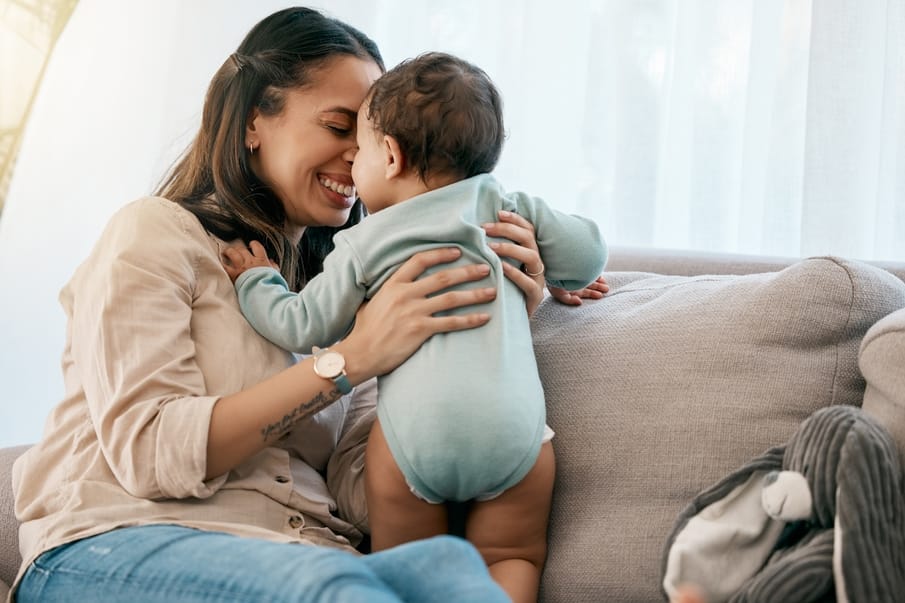We speak to two single parents to find out more
“A lot of people ask: ‘Do you struggle being a single parent? Do you find it difficult?’ But I don’t, really. It’s just been me since the beginning,” says Melissa Smith. “We’ve got our own routine, I’m very used to how I do it, and have never had to discuss parenting with somebody else.”
Melissa is one of the 3 million single parents living in the UK today. According to Gingerbread, the leading national charity working with single parent families, roughly 90% of these are women.
There are many negative stereotypes surrounding single mothers – for example, that they are always struggling, or have in some way failed with their life choices. But there are an increasing number of women who deliberately choose to take the road to solo parenthood – and are thriving.
“We live in a society where many women raise children and work as well, women are no longer reliant on a partner to have a child in the same way that they used to be,” explains Navit Schechter, CBT therapist and founder of the Conscious & Calm parenting site.
“For many women, their desire to have a child is stronger than their desire for a relationship, and many come to the decision to start a family by themselves because they’ve not met the right person to have children with.
“Many women decide to become a solo parent as they feel like their time to have children is running out, and they’d rather be a solo parent than miss out on being a parent at all,” says Navit.
Melissa, from Northamptonshire, was in her early 30s when she found herself at a crossroads, after breaking up with her long-time partner. “I was at the stage where I wanted to have children. I dated, but hadn’t met anybody that I was particularly interested in,” she explains.
“Everyone says you’ve got to be careful when you get to 35 as your fertility drops, and I didn’t want to force a relationship to have a child. So, I decided to look into options.”
Melissa underwent a series of tests at a fertility clinic before being given the green light to undergo IUI (intrauterine insemination), using imported sperm from a donor in Denmark.
“I spoke to my parents about it and they were really on board,” says Melissa. “My mum completely understood. She said she’d always wanted children and if she hadn’t met my dad, she would have still wanted them.”

The first treatment didn’t work, while the second IUI resulted in a chemical pregnancy. But on her third and final IUI in August 2021, Melissa achieved her wish – she was pregnant.
Melissa, a senior occupational health and wellbeing specialist at Network Rail, had good support, including her employer, who allowed time off for appointments with the fertility clinic, and also when she suffered from morning sickness.
Melissa admits that the pregnancy was tougher than she expected. She had to be induced at 39 weeks, and her baby girl, Calanthe, was delivered via emergency C-section.
Pregnancy and caring for a newborn can be a lonely and isolating experience, even for women with partners, so Melissa sought out another mum-to-be to share the highs and lows.
“I met a friend via the Peanut app. She had IVF with her partner and was due the day before me,” she says. “We became really good friends. We have compared notes the whole time.”
Melissa added: “She also found pregnancy really hard, and I don’t think I found it any harder being on my own.”
Katie Barnes, from Henley, Oxfordshire, decided to undergo fertility treatment at 37 following a relationship break-up, and knows the importance of seeking support from others.
“One of my best friends also decided to go down the solo route, and our children were born just a few months apart. It helps hugely knowing you are going through the same thing as someone else with similar routines, pressures, and worries,” Katie says. “It’s a huge help knowing you are not alone.”
Like Melissa, Katie had a fertility MOT before importing sperm from abroad for IUI. Her treatment at the TFP Thames Valley Fertility Clinic worked first time and she gave birth to Olivia in late 2021.
Her daughter did not sleep through the night until 10 months, which Katie says was “brutal”, but now she is reaping the benefits of solo parenting.
“I can parent in the style that suits me best, without having to negotiate how to parent with someone else,” she says. “I only need to focus on the relationship I have with my daughter. And I don’t think the relationship my daughter has with her grandmother would be as close if I had a partner.
“I also think there is a huge benefit from just having one set of rules and boundaries for a child.”

Women like Katie and Melissa are helping to change the narrative surrounding single mothers, a term traditionally loaded with stigma. But there is evidence that more and more women are choosing solo parenthood, sometimes at an even younger age.
“I know some women in their late 20s who have decided to do it because they’ve got a good job, a house, but have not met the right person and don’t want to force it. They don’t have to settle,” Melissa says. “I think that’s a really positive thing. It’s, without a doubt, been the best decision I have ever made.”
Katie added: “The more I talk to people, the more surprised I am when they tell me that they know other women who have done it, too. I didn’t know anyone before I embarked on it myself.
“I think there will always be people that see this route as ‘unacceptable’ due to the fact that the child is being knowingly deprived of a father, and this was something I wrestled with myself when choosing to do it, even consulting a life coach. But I don’t think those people would change their minds even if there was more awareness.”
Although Katie says she would consider having a second child with a partner, as far as Melissa is concerned, the experience of solo parenting has changed her view on romantic relationships.
“For me, the love of my life isn’t a man – it’s my daughter instead,” she says. “I feel completely at peace. I just don’t care if I never dated again, I’m not interested anymore. I am complete with her.”


Comments